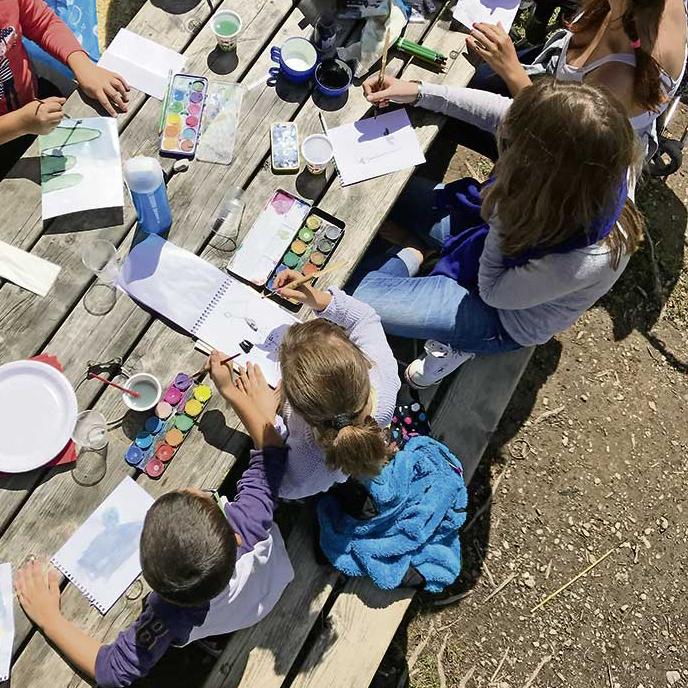Innocence In Danger fundraiser places charity at forefront of trauma research
13.02.2018 LifestyleEvery year the charity’s Gstaad chapter hosts between 20–30 children, plus family members, providing respite and positive life experiences in a beautiful natural environment, while giving all participants the creative outlets and psychological tools to aid their progress beyond the summer camps. Results at the Swiss summer camp have been so successful that other chapters in the IID network have mirrored its approach.
The therapeutic methods developed by IID at its yearly camps have received numerous endorsements from professionals in the field of child psychiatry and psychotherapy. A research study conducted over three years by the University of Applied Science in Koblenz, Germany, which based its findings on research conducted through IID summer camps, concluded that the time spent within its diverse creativity programme was highly beneficial and continued to positively impact the healing of both child and parents in the long term.
IID’s dedication to assisting as many child survivors as possible means its work is a year-round commitment. Beyond the duration of the camps, the charity dedicates its resources to monitoring the progress of child abuse cases through every stage of the legal system. This process of intensive behind-the-scenes research allows it to support and sponsor over a 150 children a year across its European network.
In a new addition to IID’s activities, researchers studying the phenomenon of epigenetic transmission – or transgenerational trauma – have collaborated with the organisation to deepen their insight within the field. The scientific theory suggests that significant psychological trauma alters and inhibits the development of the brain, and that trauma can then be inherited genetically down a family’s lineage, potentially up to three generations after the primary trauma event.
Brain damage of this type, provoked by stressful and adverse childhood experiences, has far-reaching consequences on development and behaviour. Sufferers’ brains adapt to become focused on survival, greatly reducing their impulse control and leaving them at much greater risk of delinquency. Childhood trauma is also known to powerfully impact general health, with a potential 30-90 percent increase in the likelihood of developing cancer or other diseases.
The work conducted by IID with survivors of childhood trauma aims at physically healing those parts of the brain affected. Creative tasks conducted within a nurturing environment prompt the hippocampus to form new neural connections, allowing it to repair itself. In the process it positively impacts mental and emotional development, improves overall life chances, and helps to prevent any onward genetic trauma transmission.
Researchers of epigenetic transmission have suggested that IID’s therapy methods have the potential to aid up to 100 million survivors of childhood trauma. In addition to IID’s central focus of hosting summer camps, funds raised will contribute towards its continued involvement in this arena, allowing it to pioneer further breakthroughs in the field of trauma alleviation.
Michaela Larosse




